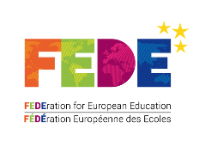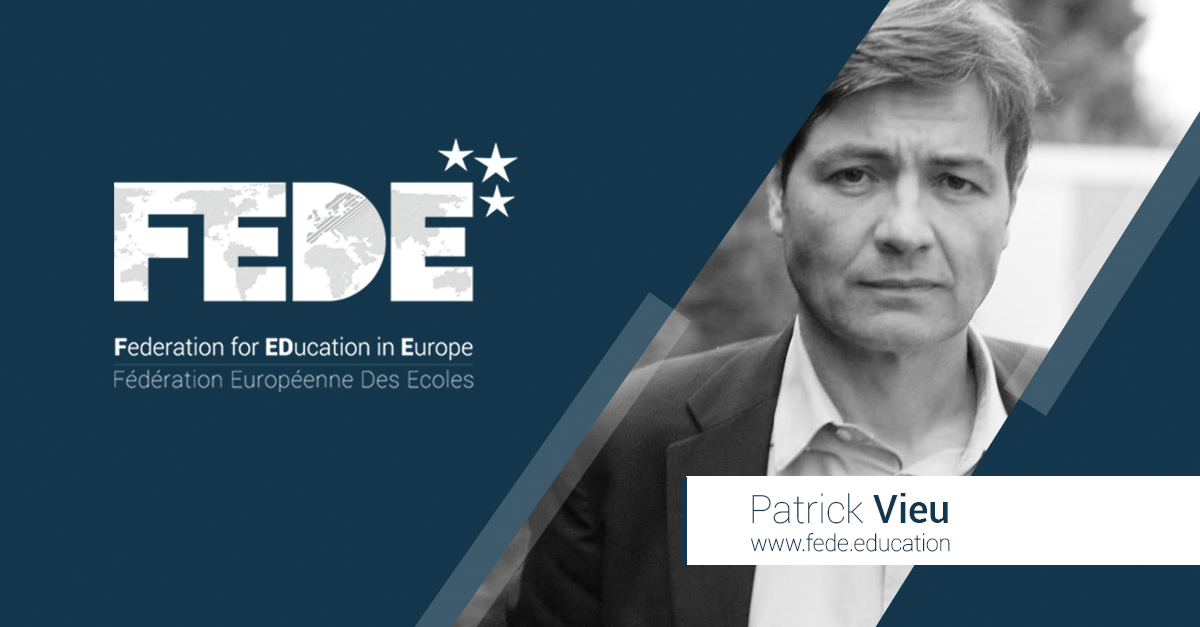Patrick Vieu: ‘We should build rather than undergo globalisation’
A graduate of the ENA (“Léon Gambetta” class of 1991-1993) and Sciences Po Paris, Patrick Vieu also has a PhD in philosophy. Among his various posts, from 2012-2014 he was the French President’s Advisor on the Environment and the Regions, focusing on transport and sustainable development. A member of the FEDE’s Academic Council, in this interview he shares his views on globalisation.
‘We should build rather than undergo globalisation’… Nice phrasing, but what does it mean?
We can manage the demographic, environmental and migration-related challenges of globalisation if we are able to produce, collectively, a representation of the world that the majority of people can approve. Rather than a globalisation based on forced interdependencies, we need a globalisation based on active solidarity.
Considering globalisation to be a given prevents us from thinking it through as a political project. But a political project it must be. It should be the template for our thoughts on the environment, Europe, the digital revolution, migration, capitalism and so on.
So there are, so to speak, two globalisations…?
Yes, we are faced with not one but two globalisations. The first is based on science and technology, the Internet and social media. It has allowed us to cancel physical distances. The second is based on commodification. It has eliminated borders and led to the emergence of a global market and society.
If we take globalisation to be a given, we do away with the intellectual space necessary to think of other approaches and, moreover, we make political action impossible. We need to ward off any discourse of powerlessness that reduces politics to the mere administration of people and things.
In concrete terms, what would the globalisation you envisage look like?
Reform the organisation and workings of the UN.
Three priorities:
– create greater transparency in nomination procedures;
– change the composition of the Security Council by allowing other states (including Germany) to become permanent members;
– restrict the veto powers of the permanent members of the Security Council in the case of mass atrocities, as suggested by France in 2015.
Extend human rights across the world
France must support efforts to combat violations of humanitarian law and to protect civilians during conflicts and NGOs during their missions on the ground. We want to see progress in extending the right to abortion and contraception and in the abolition of the death penalty.
Create a UN for the Environment
Just as health is overseen by the World Health Organisation, we need an independent, specialised body to protect our planet. UN Members would provide it with human and financial resources through obligatory contributions.
Rethink humanitarian and development aid
If we are to take on the challenge of migration, we need to address its causes in the countries of origin: armed conflicts, famines, climate issues and economic inequalities all contribute to instability. France must be on the front line in terms of providing international aid to the least developed countries so as to eradicate hunger and poverty. We must increase our public development aid and be vigilant as to how it is used.
Lay down clear principles for free exchange agreements to which France is party
I’m in favour of free exchange so long as free means fair. For this reason, we advance a new doctrine for international trade that is based on five principles:
– the exclusion of public services;
– respect for our geographic and agricultural indications and for our social, environmental and health preferences;
– respect for the right of democracies to determine their level of social, health and environmental protection;
– settlement of conflicts in line with the law and regulations of states’ democratic institutions;
– inclusion of climate and taxation concerns in trade agreements.
Regulate digital capitalism on an international scale
Given the role that algorithms are acquiring in our lives, we need to think about the consequences of the digital revolution. The power of multinational digital corporations is raising legitimate questions. Our national legislation and European law need to be applied to the use of data on our territory, and the personal data of our citizens need to be protected in the case of conflict. Finally, we suggest setting up an international digital regulatory body.
Reflect on the commons and the right of property
We need new conceptual, political and legal tools to address the new realities of globalisation and questions of political philosophy, such as the status and management of the commons (ecosystems, physical resources, information, networks and cognitive infrastructures). We also need to think about the right of property as product-service systems develop. Indeed, the survival of humanity is increasingly dependent on indivisible goods.

